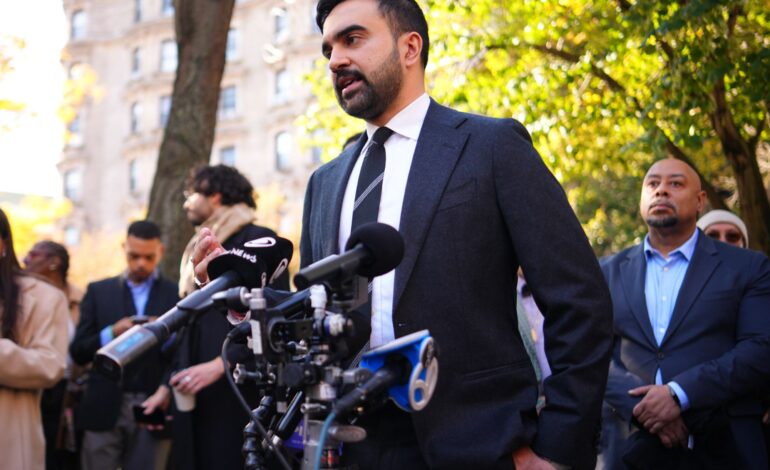Antifa, Pension Losses, and Grocery Store Debates Ignite Commentary

The ongoing debate surrounding Antifa, public pension losses, and city-run grocery stores has sparked intense commentary among political commentators and analysts. Key figures such as Rep. Dan Goldman and late-night host Jimmy Kimmel have claimed that Antifa does not exist as a cohesive organization. However, legal expert Jonathan Turley counters this assertion, highlighting recent actions by self-identified Antifa members, including a hit list targeting a leader from Turning Point USA. This incident culminated in an attack on the individual, allegedly carried out by someone in typical Antifa attire.
As Democratic leaders continue to deny the existence of Antifa, Turley argues that this is a strategic move to deflect criticism regarding their own rhetoric, which has become increasingly confrontational. While Antifa is noted for its lack of formal leadership structures, former FBI Director Christopher Wray has affirmed that the group is indeed real and active.
Pension Fund Faces Significant Losses in Clean Energy Investments
In California, the state’s public employee pension fund, CalPERS, has recently reported a staggering loss of 71% on a $468 million investment in a private equity fund focused on clean energy and technology. According to reports from The Center Square, this financial setback leaves the pension benefits only 79% funded, placing taxpayers at risk for the remaining 21%.
To address a pension shortfall estimated at approximately $180 billion, CalPERS has increased its investments in private equity, particularly in solar power ventures, which have shown better performance compared to other asset classes. However, public finance experts caution that private equity investments are often expensive, risky, and lack the necessary transparency, raising concerns about their suitability for pension plans.
Younger Democratic Candidates Face Scrutiny
Political commentator Joe Klein has expressed concerns over the Democratic Party’s generational dynamics, suggesting that younger candidates are being favored over older leaders. He describes this trend as the party’s “generational police” targeting the Baby Boomer generation. Klein notes that while there is enthusiasm for younger candidates, many lack substantial real-life experience, drawing comparisons to figures like Zohran Mamdani, who he characterizes as a “perfect dilettante.”
Despite the call for new leadership, Klein argues that many of these emerging candidates remain disconnected from the prevailing sentiments in America, continuing to adhere to outdated political strategies. He points out that there is a scarcity of candidates willing to break free from the party’s identity politics.
Crime Concerns and Political Accountability in Manhattan
The political landscape in Manhattan has also been marked by scrutiny of District Attorney Alvin Bragg, particularly regarding his prosecution of former President Donald Trump. Byron York of the Washington Examiner noted that the trial, which many see as Bragg’s most significant achievement, received surprisingly little attention during his re-election debates. This is likely due to the fact that only 17.6% of Manhattan voters supported Trump in the 2024 elections, compared to 82.4% backing Vice President Kamala Harris.
As crime rates have risen under Bragg’s tenure, many businesses, particularly those in retail, have resorted to securing essential items like toothpaste behind lock and key. Critics are questioning whether voters will hold Bragg accountable for his focus on a controversial case while serious crime persists in the city.
Debate Over City-Run Grocery Stores in New York
The idea of city-run grocery stores as a potential solution for food access in New York City has been met with skepticism. Mamdani advocates for these stores, arguing they could provide cheaper food options by eliminating profit motives, rent, and taxes. However, Natalie Dowzicky from Reason challenges this notion, citing a failed government-run grocery store initiative in Kansas City that lost nearly $900,000 last year.
Critics argue that rather than pursuing government grocery stores, efforts should focus on addressing more pressing urban issues, such as homelessness and public safety. The debate continues, highlighting differing perspectives on how best to serve the needs of New Yorkers while ensuring fiscal responsibility.
In summary, the discussions surrounding Antifa’s existence, significant pension fund losses, and the viability of city-run grocery stores illustrate a complex political landscape characterized by competing narratives and differing priorities among stakeholders.






